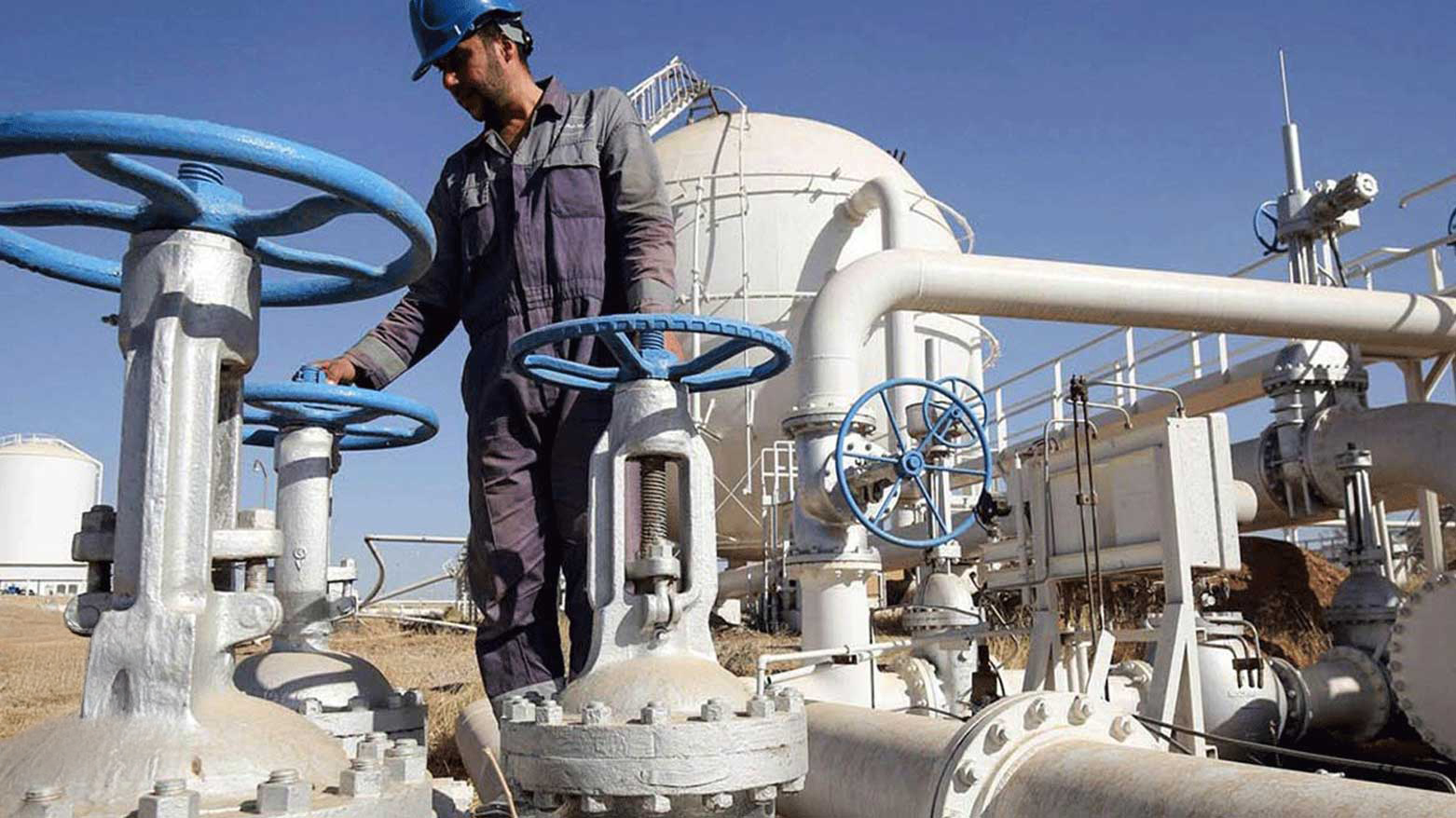Kurdistan Oil Exports Poised for Resumption Pending Tripartite Agreement
The Iraqi Deputy Speaker of Parliament, Shakhawan Abdullah, announced that agreements had been reached on both oil and non-oil issues, including the disbursement of salaries for employees in the Kurdistan Region.

ERBIL (Kurdistan24) — Technical preparations for the resumption of oil exports from the Kurdistan Region have been completed, with exports expected to restart in the coming days once a tripartite agreement is finalized between Erbil, Baghdad, and international oil companies operating in the Kurdistan Region.
According to Kurdistan24’s follow-ups, work began in early September to prepare the infrastructure necessary for resuming exports, and the process was completed on Monday.
A source at the Khurmala oil field told Kurdistan24 on Saturday that the Kurdistan oil pipeline from Khurmala to Kawergosk underwent testing through pipeline cleaning, pump maintenance, and a comprehensive review of oil storage tanks as part of technical preparations. These procedures have now been finalized.
All arrangements are now in place for oil exports through the pipeline network to Turkey’s Ceyhan port, pending the outcome of a key tripartite meeting between the Kurdistan Regional Government’s (KRG) Ministry of Natural Resources, Iraq’s federal Oil Ministry, and oil-producing companies, expected to take place before Tuesday.
Kurdistan24 correspondent reported Saturday evening that workers at Khurmala oil field have already been informed that exports will resume within days.
A senior source in Baghdad’s Oil Ministry also confirmed that “this week will witness a meeting bringing together the KRG Ministry of Natural Resources, the federal Oil Ministry, and oil companies to sign the agreement.”
In a related development, on Sunday, the Iraqi Deputy Speaker of Parliament Shakhawan Abdullah announced that agreements had been reached on both oil and non-oil issues, including the disbursement of salaries for Kurdistan Region employees.
He further noted that the proposed new deal between Turkey and Iraq has been finalized between Iraq’s State Oil Marketing Organization (SOMO) and Turkish companies for the transport of Kurdistan’s crude oil.
Oil exports from the Kurdistan Region through the Iraq–Turkey pipeline have been suspended since March 2023 following an international arbitration ruling in favor of Baghdad.
The International Chamber of Commerce (ICC) ordered Turkey to halt Kurdistan crude exports after Baghdad argued that Erbil had been exporting independently in violation of a 1973 pipeline agreement between Iraq and Turkey.
The halt has significantly impacted the Kurdistan Region’s economy, depriving the KRG of its primary revenue source and forcing it to rely heavily on delayed and politically fraught budget transfers from Baghdad.
The standoff has also strained relations between Erbil and Baghdad, with disputes centering on revenue-sharing, the legality of contracts signed by the KRG with international oil companies, and constitutional interpretations regarding the management of natural resources.
Efforts to resolve the dispute have intensified in recent months, with both governments under pressure from international oil companies to find a lasting solution. For Baghdad, regaining control over oil exports strengthens its fiscal sovereignty, while Erbil seeks assurances of stable revenue flows and recognition of its contractual commitments with energy firms.
The pending agreement—if signed—would mark a breakthrough in one of Iraq’s most contentious political and economic disputes. It could restore up to 400,000 barrels per day of Kurdistan oil exports to global markets, ease budgetary tensions between Erbil and Baghdad, and provide a much-needed boost to Iraq’s overall oil export capacity amid fluctuating global energy prices.
At the same time, however, the agreement’s durability will depend on whether it can balance Baghdad’s constitutional claims over oil revenues with Erbil’s demand for guaranteed funding and autonomy in managing its natural resources.
Iraq has been losing more than $11 million every single day due to the continued suspension of oil exports from the Kurdistan Region, according to the ECO IRAQ Observatory, a specialized economic monitoring platform known for its independent assessments of the country’s energy and financial policies.
The observatory placed direct blame on Baghdad’s parliament for failing to resolve the long-standing dispute over oil and gas management.
The U.S.-based observatory announced on September 13 that the Kurdistan Region was expected to export approximately 230,000 barrels of crude oil per day, in addition to allocating around 50,000 barrels for local consumption.
With the cost of extraction and transportation standing at $16 per barrel and $1.5 in fees to Turkey for delivering crude to the Ceyhan port, the net profit per barrel remains substantial.
At an estimated price of $66 per barrel, the suspension of these exports translates into a staggering daily loss of $11.16 million, amounting to $334 million per month and over $4 billion annually in missed revenues for Iraq.
Despite these heavy financial losses, the federal government in Baghdad has failed to reach an agreement with Erbil, leaving negotiations shrouded in secrecy and accountability lacking.
The monitoring group held Iraq’s parliament directly responsible, accusing it of creating chaos by refusing to pass a long-awaited 'Oil and Gas Law' to regulate and manage the country’s oil and gas sector.
This article has been updated.